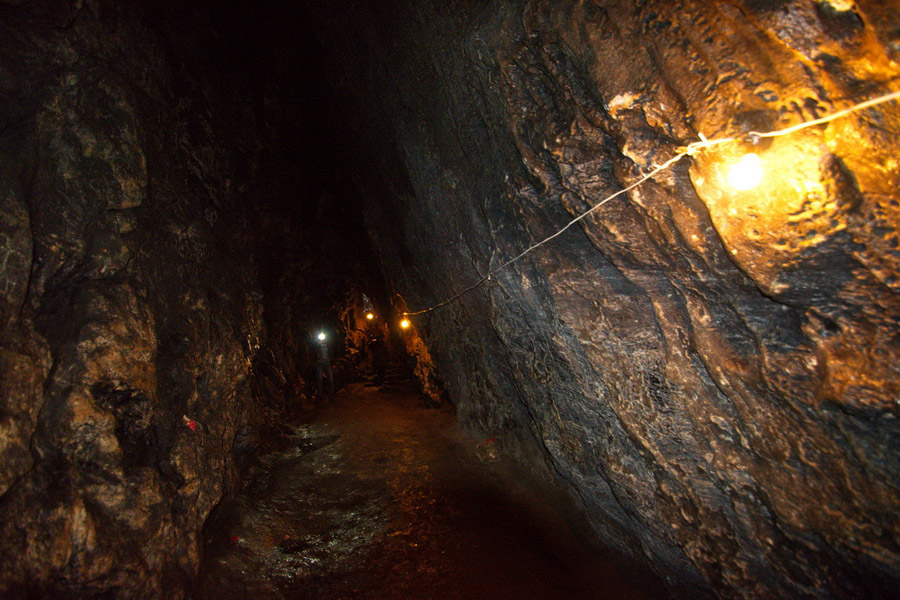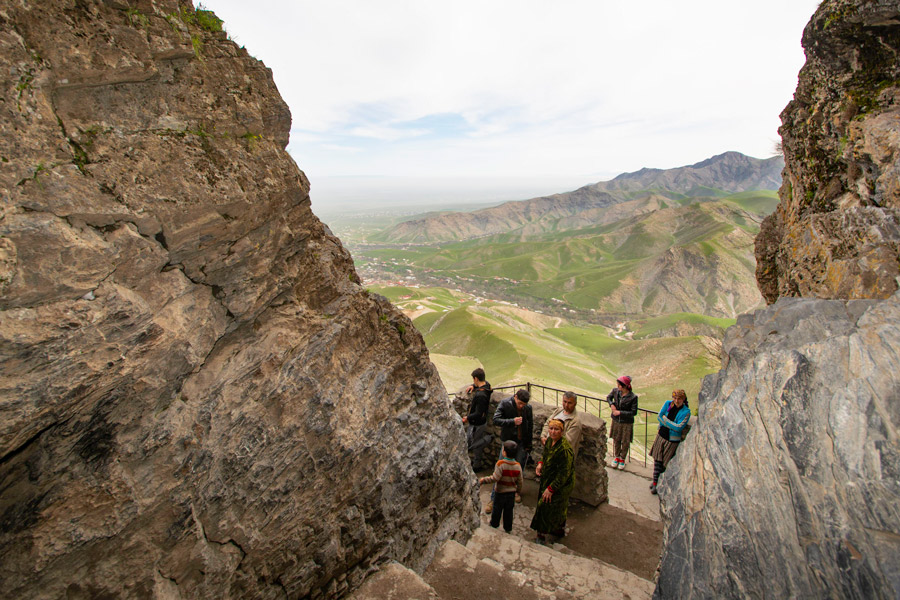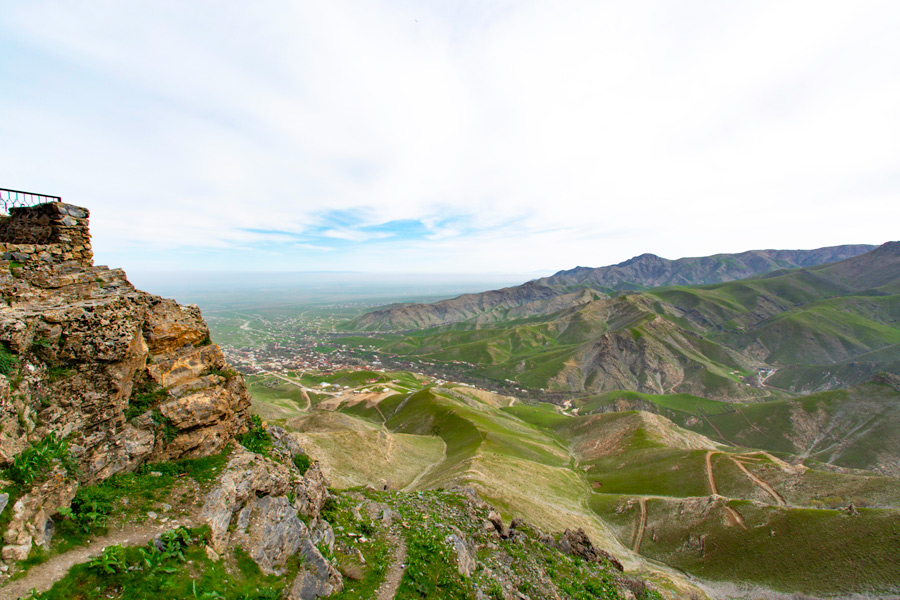
One of the famous holy places in Uzbekistan is found 40 km to the south-west from Samarkand, in the Aksay village territory. It is the Cave of Hazrat Daud (St. David), worshipped in three world’s religions. The cave is wrapped in a shroud of many legends, year in, year out, told over by the locals to pilgrims who come there to ask the saint for healing or accomplishment of their heart’s desire.
According to an Arab legend Lord sent the biblical King David to Asia to preach monotheism. The preaching of Hazrat Daud, as he was called by Muslims, kindled the anger of Zoroastrians, who lived there, causing them to pursue him. Daud took refuge in the mountains, and praying to God, was able to move apart the stones by hands and tucked in the mountain.

According to another popular legend David was seeking a secret place to rest before the battle with Goliath. Genii brought him to a mountainous area close to Samarkand, but ifrits found him and brought giant Goliath on their backs too. David applied to God with a prayer to hide him, for he was not yet ready for the battle with Goliath. He ran until he had inaccessible cliffs got in his way. Believing that Lord would protect him, David began to dig a hole in a boulder which suddenly became softer than wax in his hands. He went deep into the rock, leaving Goliath holding an empty bag, and basting the rock with his club in epicene fury.
The cave of Hazrat Daud is believed to fulfill any, even most incredible desire. To get to it you need to mount 1303 steps, plunging up to the mountain peak. There, at the top, you can pray at the ancient mosque. Then you need to go down 200 steps to the cave of Hazrat Daud. The cave, from 0.5 to 4-m wide, up to 15-m high and up to 30-m long, is a dark tunnel where you can see Daud’s handprints and footprints at its end. To make a wish you should touch them.

Not every pilgrim is able to climb up about 2,000 steps. The locals offer a donkey or horse to climb the mountain. Along the whole length of the stairs there are shopping stalls trading water, officinal mountain herbs, skins of wild animals and different souvenirs.

